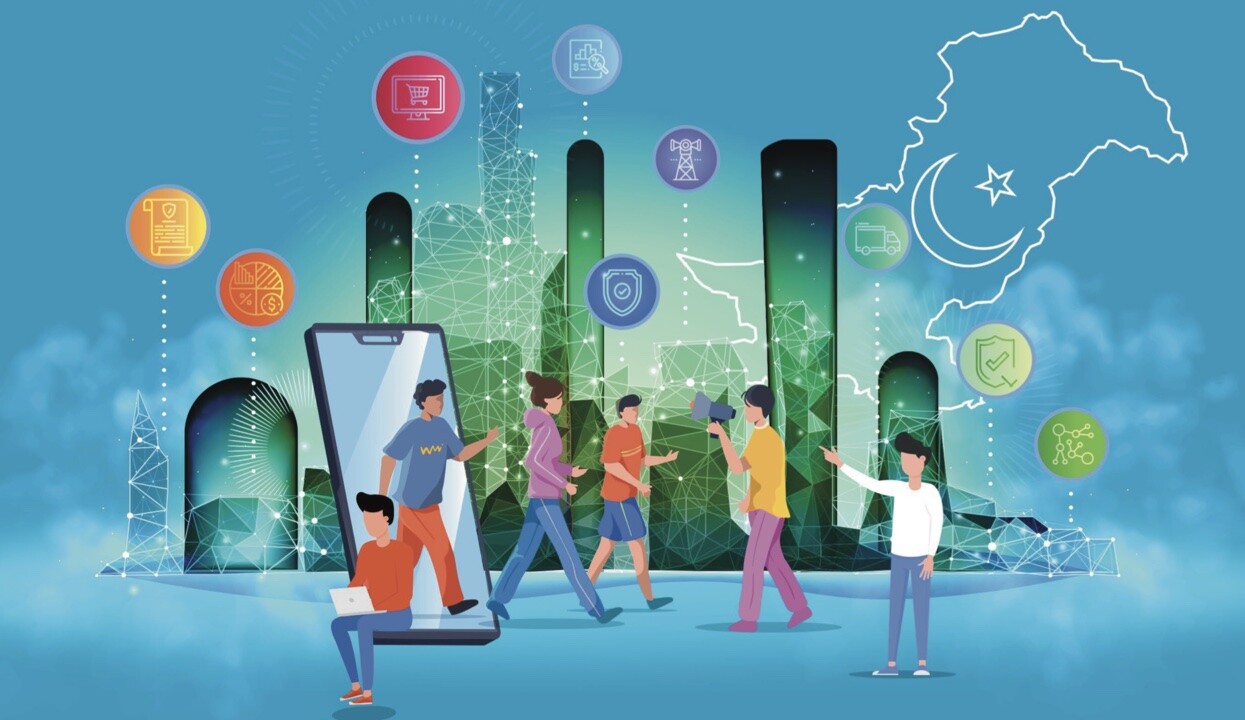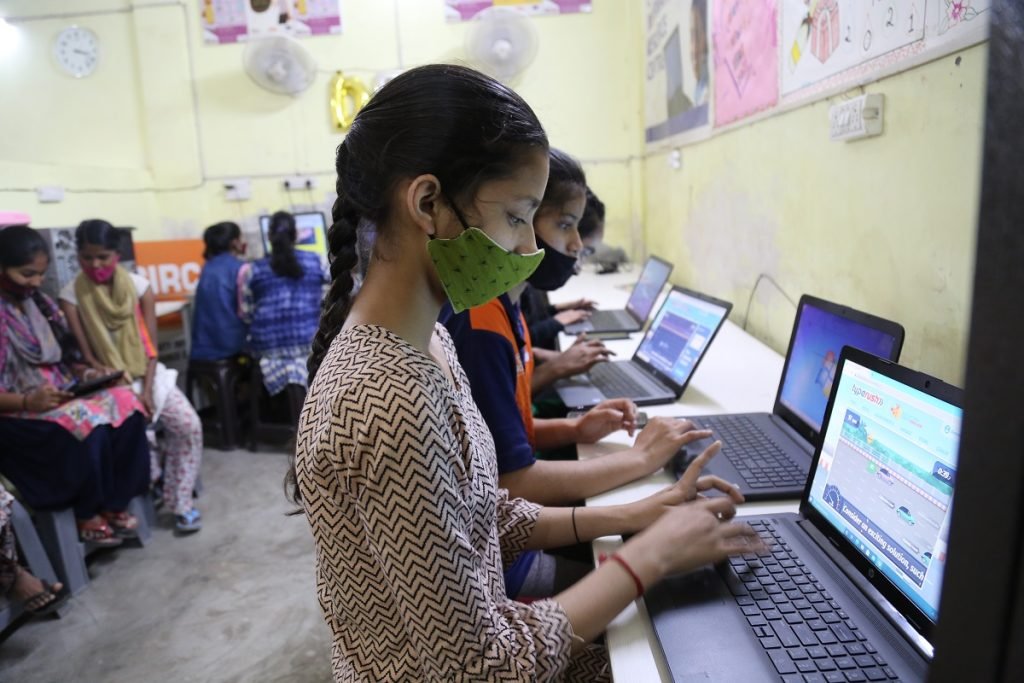The Importance of Digital Literacy in Pakistan in 2023

Digital literacy has become a crucial skill set in today’s technologically advanced world. As the digital landscape continues to evolve, it is essential for individuals and nations to adapt and embrace digital literacy to fully participate in the digital age. In Pakistan, a country with a rapidly growing digital ecosystem, the importance of digital literacy cannot be overstated.
In this article, we will explore the significance of digital literacy in Pakistan in 2023. We will delve into the current state of digital literacy in the country, the challenges it faces, and the various domains where digital literacy can have a transformative impact. From economic empowerment and education to digital citizenship and government initiatives, we will examine the multifaceted benefits of digital literacy and its role in shaping Pakistan’s future.
Read more: The Future of Digital Banking in Pakistan 2023
Digital Literacy in Pakistan

In 2023, Pakistan finds itself at a pivotal point in its digital transformation journey. While the country has made significant strides in the digital sphere, there is still a considerable gap in digital literacy among its population. Many Pakistanis lack the necessary skills and knowledge to effectively navigate and utilize digital technologies, hindering their ability to seize the opportunities presented by the digital revolution.
However, efforts are underway to bridge this gap and promote digital literacy across the country. Various organizations, including the government, private sector, and non-profit entities, are working together to empower individuals with the necessary digital skills.
Economic Empowerment
One of the key benefits of digital literacy is its potential to enhance economic empowerment. In Pakistan, where youth unemployment is a pressing issue, digital literacy plays a crucial role in improving employability and expanding job prospects. Individuals equipped with digital skills have a higher chance of securing employment in today’s digital-centric job market.
Moreover, digital literacy also nurtures entrepreneurship and contributes to the growth of the digital economy. As more Pakistanis gain digital literacy skills, they can harness technology to create innovative startups, drive e-commerce, and participate in the global digital marketplace.
Education and Learning
Digital literacy has a profound impact on education and learning outcomes. In Pakistan, where access to quality education is still a challenge in some areas, digital literacy can bridge the gap by providing students with access to online educational resources and tools. It opens up avenues for remote learning, enabling students to learn from the comfort of their homes and access a wide range of educational materials.
Additionally, digital literacy enhances student engagement and fosters critical thinking skills. By integrating digital technologies into the learning process, educators can create interactive and immersive learning experiences that captivate students and facilitate knowledge retention.
Digital Citizenship

As more Pakistanis connect to the digital world, promoting digital citizenship becomes paramount. Digital literacy equips individuals with the knowledge to navigate the online world responsibly. It emphasizes the importance of ethical behavior, privacy protection, and online safety.
By promoting digital literacy, Pakistan can create a generation of responsible digital citizens who contribute positively to online communities and combat issues such as cyberbullying, misinformation, and digital fraud.
Government Initiatives
The Pakistani government recognizes the importance of digital literacy and has taken proactive measures to promote it. Initiatives such as the Digital Pakistan Vision aim to empower citizens through digital skills training and create an enabling environment for digital innovation. These initiatives have had a positive impact, with an increasing number of Pakistanis gaining digital literacy skills and actively participating in the digital ecosystem.
Furthermore, the government has partnered with various organizations to establish digital training centers, organize workshops, and provide online learning platforms. These collaborative efforts have proven instrumental in spreading digital literacy across the country.
Private Sector Contributions
The private sector in Pakistan also plays a significant role in fostering digital literacy. Tech companies, telecommunications providers, and educational institutions have launched programs and initiatives to promote digital skills and knowledge. Public-private partnerships have been formed to leverage the expertise and resources of both sectors, resulting in the successful implementation of digital literacy projects.
By working hand in hand, the government and the private sector can create a comprehensive ecosystem that supports digital literacy initiatives, ensuring a wide reach and impact.
Bridging the Gender Gap
Gender disparity in digital literacy is a challenge that needs to be addressed in Pakistan. The digital gender gap prevents many women and girls from accessing digital opportunities and limits their participation in the digital economy.
To overcome this challenge, it is essential to promote gender-inclusive digital literacy initiatives that specifically target women and girls. By providing them with the necessary skills and resources, Pakistan can empower women to leverage digital technologies for personal and professional growth, fostering gender equality in the digital realm.
Overcoming Infrastructure Challenges
Expanding digital literacy in Pakistan requires addressing infrastructure challenges, particularly in remote areas. Reliable and affordable internet connectivity is crucial for enabling individuals to access digital resources and participate in online learning platforms. Efforts should be made to improve digital infrastructure in underserved regions, ensuring equal access to digital opportunities for all Pakistanis.
Collaborative Partnerships
Promoting digital literacy requires collaborative partnerships among various stakeholders. Governments, non-governmental organizations (NGOs), civil society, and educational institutions must work together to create a comprehensive digital literacy framework. By pooling resources, sharing best practices, and coordinating efforts, these partnerships can maximize the impact of digital literacy initiatives in Pakistan.
Digital Literacy in Rural Areas

While urban areas in Pakistan have witnessed significant digital progress, rural areas often lag behind in terms of digital literacy. Bridging the urban-rural divide is crucial for ensuring equal opportunities for all Pakistanis.
Special attention should be given to digital literacy programs tailored for rural communities. These programs should address the specific needs and challenges faced by rural populations, empowering them to leverage digital technologies for their socio-economic development.
Future Trends and Emerging Technologies
In the coming years, emerging technologies such as artificial intelligence, automation, and the Internet of Things will continue to shape the digital landscape. Digital literacy will play a vital role in preparing individuals to adapt to these advancements and utilize them for their benefit.
Nurturing digital innovation and creativity should be a priority, enabling Pakistanis to harness emerging technologies and drive digital transformation in various sectors, including healthcare, agriculture, and finance.
Benefits in Healthcare
Digital literacy also holds immense potential in revolutionizing healthcare in Pakistan. By leveraging digital technologies, healthcare providers can improve access to medical information, facilitate telemedicine services, and enhance the overall quality of healthcare delivery. Digital literacy equips both healthcare professionals and patients with the skills to leverage these advancements, improving healthcare outcomes across the country.
Read more: The Rise of E-Learning in Pakistan in 2023
Conclusion
In conclusion, digital literacy is of utmost importance in Pakistan in 2023. It serves as a catalyst for economic empowerment, education, digital citizenship, and inclusive development. By promoting digital literacy initiatives, Pakistan can bridge the digital divide, empower individuals, and unlock the country’s potential in the digital age.
Digital literacy requires a collaborative effort from the government, private sector, civil society, and educational institutions. Through proactive measures, investments in infrastructure, and targeted programs, Pakistan can foster a digitally skilled population capable of embracing emerging technologies and driving the country’s socio-economic growth.
FAQs
Why is digital literacy important in Pakistan?
Digital literacy is essential in Pakistan as it equips individuals with the skills and knowledge needed to navigate the digital world, access opportunities, and participate in the digital economy.
How does digital literacy benefit education in Pakistan?
Digital literacy improves access to quality education, enhances learning outcomes, and empowers students through interactive and immersive learning experiences.
What challenges does Pakistan face in promoting digital literacy?
Pakistan faces challenges such as infrastructure limitations, gender disparities, and the need for comprehensive digital literacy frameworks to promote widespread adoption.
How can the government and private sector collaborate to promote digital literacy?
The government and private sector can collaborate by establishing public-private partnerships, sharing resources, and leveraging expertise to implement digital literacy initiatives effectively.
What is the role of digital literacy in healthcare in Pakistan?
Digital literacy in healthcare enables access to telemedicine services, health information, and improves healthcare delivery, ultimately leading to better health outcomes for individuals in Pakistan.








One Comment